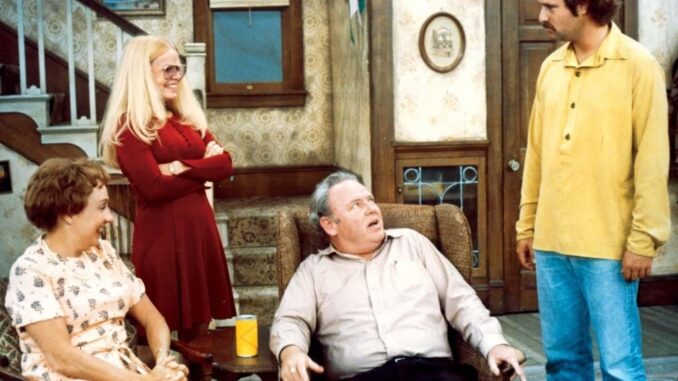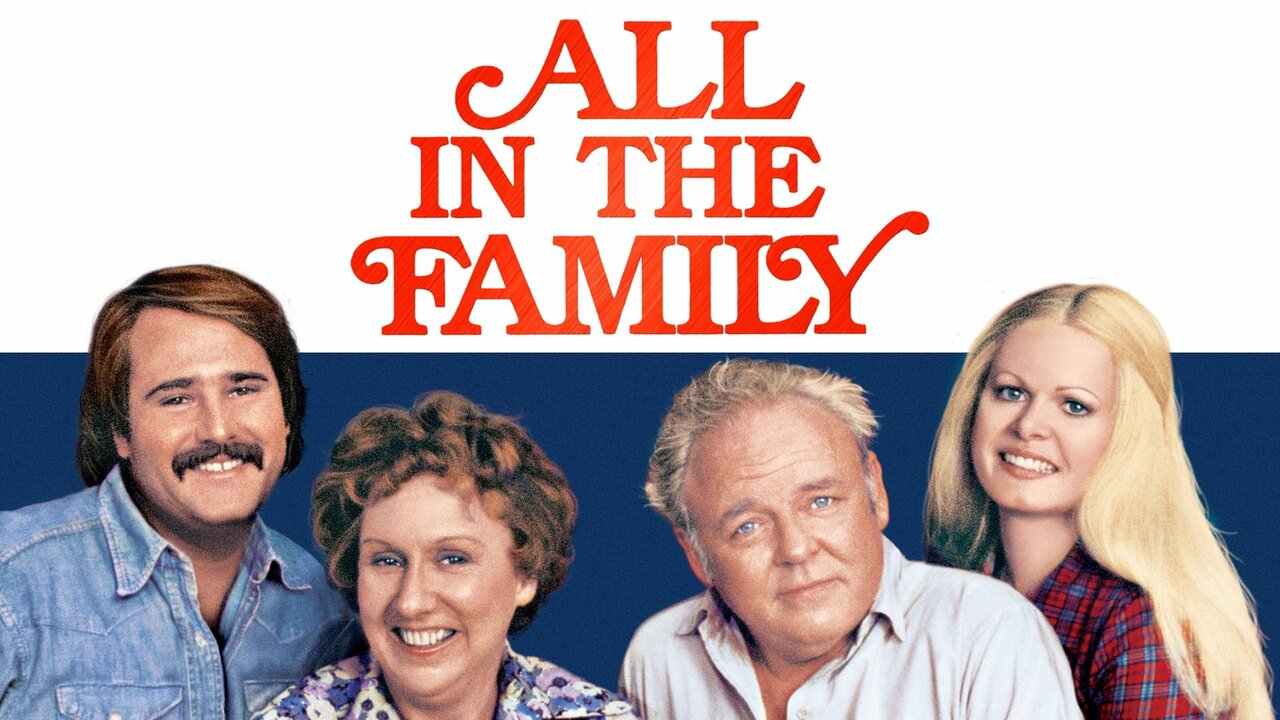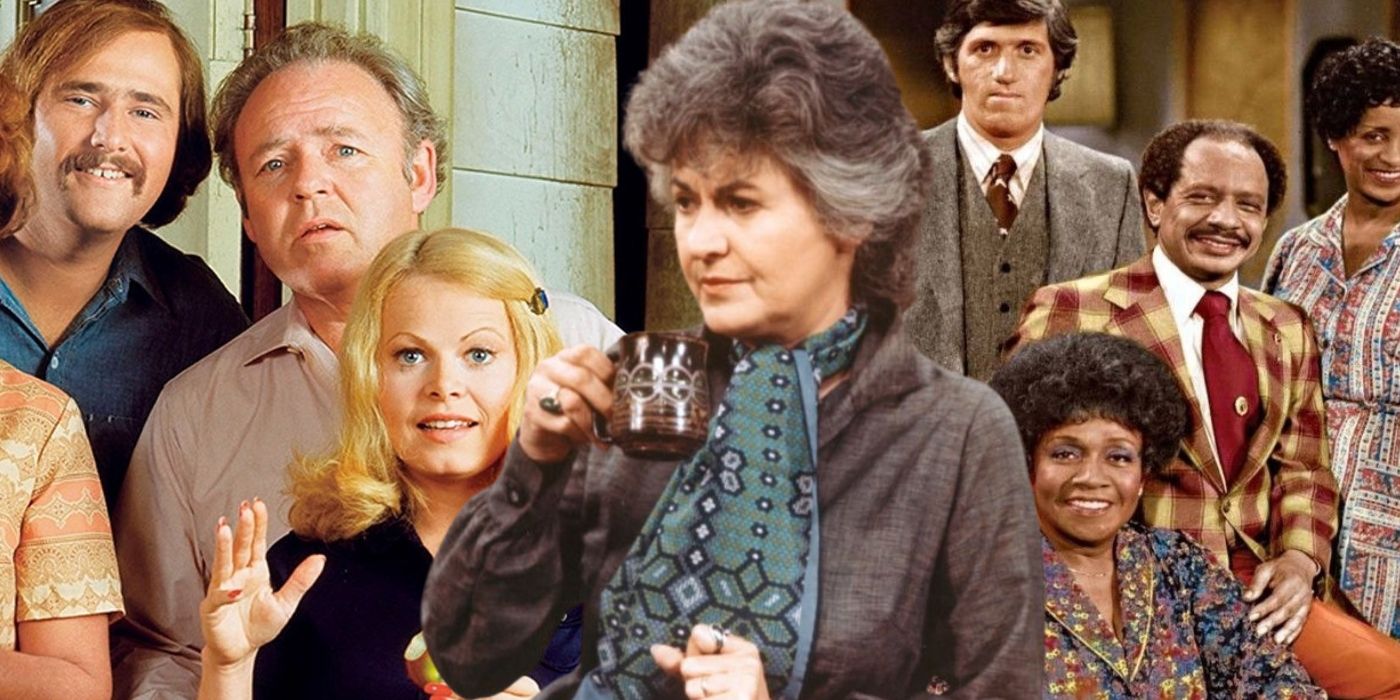
A Sensitive All in the Family Moment Elicited An Explosive Audience Reaction
All in the Family was never just a sitcom—it was a cultural battleground where the major issues of the day were explored, dissected, and often made uncomfortable by the sharp wit of its characters. The show, which premiered in 1971, was groundbreaking in its ability to discuss topics like racism, sexism, class inequality, and politics with a raw honesty that was unprecedented in television. Yet, while its humor often provoked laughter, it was also capable of provoking intense emotions—sometimes outrage, sometimes discomfort, but always a reaction.
One of the most memorable and explosive moments from the show came in the form of a single, sensitive scene that stunned viewers and forever changed the way television could address controversial topics. This moment wasn’t just a flash in the pan—its impact rippled across the American public and led to discussions about societal values, censorship, and the role of television in shaping culture. But what was this moment, and why did it elicit such an explosive audience reaction? Let’s dive in.
The Boldness of All in the Family’s Storytelling
When you think of All in the Family, it’s hard not to think of Archie Bunker, the bigoted yet lovable working-class man at the center of the show. Played by Carroll O’Connor, Archie’s character was designed to challenge the status quo and expose the prejudices that lurked in American society. Through Archie, the show explored uncomfortable topics—often using humor to dissect racism, homophobia, misogyny, and class struggles.
The show didn’t shy away from sensitive or controversial issues. In fact, it sought them out. By showcasing Archie’s deeply entrenched prejudices, All in the Family forced viewers to confront their own biases, whether they were conscious of them or not. The audience’s reactions to these moments were not just a reflection of the show’s writing and acting, but of the societal climate of the time—one that was dealing with civil rights movements, the changing roles of women, and the fallout from the Vietnam War.
Despite its edgy approach, the show’s creators took great care to show the complexity of these issues, avoiding simple caricatures. This is what made one specific moment so memorable—it wasn’t just a joke or a punchline. It was a turning point in television history.
The Moment That Shocked America: Edith Bunker’s Rape Story
Perhaps the most explosive and sensitive moment in All in the Family came in the episode titled “Edith’s 50th Birthday.” In this episode, Edith Bunker (Jean Stapleton) confides in her husband Archie (Carroll O’Connor) that she was once a victim of sexual assault. The moment was not only shocking for its subject matter but also for the way it was treated—handled with seriousness and sensitivity, rather than turning it into a joke or trivializing it, which was all too common in 1970s television.
The story unfolds as Edith reveals that, during her youth, she had been attacked by a man. She goes on to explain that while she was initially fearful and confused about the experience, she later understood it was an assault. The powerful moment left a deep impression on viewers, who were not used to seeing such raw, unflinching depictions of sexual violence on mainstream television.
This scene was controversial because it wasn’t just a plot device to move the story along. It was a rare, direct confrontation with a sensitive subject in a medium that had largely avoided such topics. The show allowed Edith, a character who had previously been portrayed as naïve, innocent, and often the butt of jokes, to become a symbol of resilience and strength. The fact that the audience was invited into her emotional journey made the moment all the more powerful—and all the more difficult to digest for many.
1. The Immediate Audience Reaction: Shock and Outrage
The moment was so sensitive and groundbreaking that it left audiences divided. Some viewers were deeply moved by the honesty and humanity with which the storyline was portrayed, while others were disturbed by the fact that a primetime sitcom would broach such a sensitive topic at all. In a time when rape was still largely seen as taboo for discussion on television, this scene forced America to confront its discomfort with sexual violence.
Many people took issue with the fact that a sitcom—a genre typically associated with lighthearted entertainment—would bring such a serious issue to the forefront. For those who were already fans of the show, however, it was a moment of raw honesty that felt like a necessary step in broadening the conversation around women’s issues, gender roles, and personal trauma.
In particular, the scene stood out in how it portrayed the trauma of sexual assault as something that didn’t just affect the victim in the moment, but reverberated throughout their entire life. It challenged the way people thought about rape survivors, turning Edith into a more complex, multi-dimensional character.
2. The Pushback: Censorship and the Limits of TV
While the show’s creators and writers were committed to exploring tough subjects, not everyone was ready for this level of frankness on television. Critics argued that All in the Family had crossed a line, with some calling the rape storyline in bad taste or questioning whether a sitcom was the right platform for such serious content. This outcry is a testament to how far the boundaries of TV had yet to be pushed at the time.
There was also a larger societal debate around censorship and whether content like this was appropriate for family viewing, particularly during the “family hour” of primetime television. Though the show had already built a reputation for addressing difficult topics, this particular scene raised alarms for those who believed television should steer clear of uncomfortable, controversial subject matter. For some, the moment was too much to handle.
However, this explosive audience reaction was part of what made All in the Family so groundbreaking. The show had always made a point of discussing uncomfortable subjects, but this storyline highlighted how much television was capable of shaping public discourse. The creators didn’t shy away from difficult topics—they leaned into them, even when they knew it might ruffle feathers.
3. A Changing Television Landscape
In the years following this moment, TV would continue to evolve. All in the Family wasn’t just a sitcom; it was part of a cultural shift in how we talk about issues like gender, race, and sexuality. While it was controversial at the time, this moment with Edith also marked the beginning of a more open dialogue on topics that were once considered taboo.
Television, as a medium, would go on to address more sensitive issues with greater frequency and depth, setting the stage for future shows like The Cosby Show, Roseanne, The Mary Tyler Moore Show, and even more modern programs like The Handmaid’s Tale or Orange is the New Black. What All in the Family did differently, though, was to tackle these issues with humor and satire, making them more palatable for a mainstream audience while still making sure that the gravity of the subject matter was never lost.
4. The Enduring Relevance of the Moment
Today, that moment in All in the Family remains one of the most important and powerful scenes in TV history. It represents a time when television began to confront the issues of the day with a level of honesty and seriousness that had previously been reserved for drama or news programs. By addressing such a sensitive topic in a sitcom, All in the Family set the stage for the complex, multi-dimensional portrayal of women and issues of sexual violence that we see on television today.
The show’s legacy lives on not just through its groundbreaking comedic moments but through its ability to push the boundaries of what was acceptable to discuss on TV. Moments like this one made it clear that television had the power to shape public discourse, forcing audiences to reflect on issues that were often left unspoken.
Conclusion: Bold Television That Still Speaks to Us
All in the Family was a show that was never afraid to address the hard truths of American society, even if it meant causing discomfort, controversy, or outrage. The sensitive moment with Edith Bunker was a pivotal point in the show’s legacy, one that changed the landscape of television and made it possible for future generations to tackle similarly sensitive topics with the same level of honesty and depth.
In today’s world, where discussions about gender, sexual violence, and women’s rights are still ongoing, the importance of this moment in television history cannot be overstated. It reminds us that the most powerful stories on TV are often the ones that challenge us the most.
FAQs:
1. Why did Edith Bunker’s rape story cause such a reaction? The story was controversial because it addressed a sensitive issue—rape—on a primetime sitcom, which was rare at the time. It forced the audience to confront sexual violence and trauma in a way that was unconventional for television.
2. How did All in the Family handle sensitive topics like rape? The show approached sensitive issues with raw honesty, often mixing humor and seriousness. In Edith’s case, her rape story was treated with emotional depth, avoiding trivialization and creating a moment of empathy.
